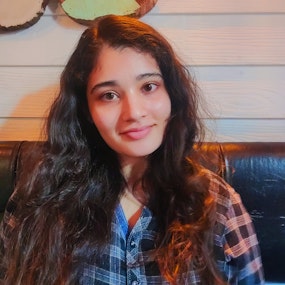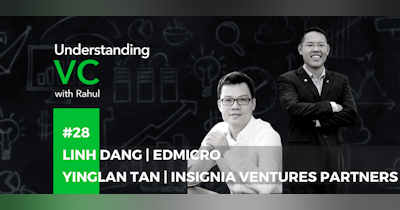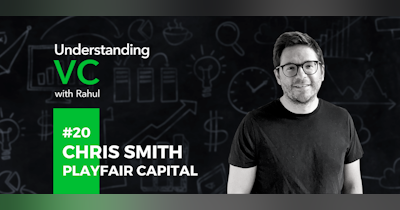In the newest episode of Understanding VC, we talked to Adrian Li, Founder and Managing Partner at AC Ventures. AC Ventures aims on funding scalable early-stage startups, with a focus on developing markets like China and Indonesia. This episode was particularly engrossing owing to Adrian’s diverse interests and personality which lends an extraordinary freshness to his approach towards venture capital and entrepreneurship.
We talked to Adrian about his interest in developing markets, the utility of technology for early-stage scalable startups, the idea behind his first startup Idapted and how it fared in the Chinese market, and how his athletic journey has benefitted him with a better understanding of the evolution of businesses and startups.
“We sometimes under-appreciate the importance of timing”
Adrian, like most other successful investors, started his journey as an entrepreneur in 2006 by founding Idapted, a one-one-one online spoken English learning platform for Chinese students. He was met with several difficulties related to the requisite infrastructure and technology. In 2006, even 3G was a new phenomenon and of course, it was riddled with accessibility issues.
Recollecting that experience a decade and a half later, Adrian believed his execution was six years too early which is also illustrated by the comparative success of VIPKID, a similar startup founded by Cindy Mi in 2013.
In 2020, at the turn of the decade, Adrian founded AC Ventures after years of entrepreneurial experience. We were curious about what ignites his passion more, entrepreneurship or investing? To this, Adrain had an amusing answer. He refers to himself as a “venturepreneur”, taking into account his hybrid role of a founder starting a venture capital fund. While investment strategy and market understanding is key for Adrian as a venture capitalist, as a founder he pays keen attention to the process of hiring the right people.
“It’s sometimes less about just the business, but more about the team and the founders who we’re trying to back.”
Adrian’s science of hiring people is dictated by a simple concept, the smaller a company is, the more it needs concentrated talent without any wastage on expenditure in order to optimize the outcomes. Adrian’s straightforward advice for founders when it comes to hiring is “understand the role you’re hiring for.” He adds, “Combining the right complementary experience and capabilities from a founding set is one of the most important things an entrepreneur can do.”
He highly recommends the book Topgrading by Bradford D. Smart to both founders and investors.
Topgrading is an extremely advantageous hiring technique which compels employers to acquire a thorough understanding of the candidates’ personality, background, and experience, going beyond the superficial assessments through interviews and resumes. It is proven to be a highly effective method because, without topgrading, it isn’t just employers who are missing out on the best talent required for an impeccable workforce, but numerous employees also land jobs that are unfit for them. It ends up being a situation where the lock and key are perfectly functional, but they are paired up incorrectly.
We advanced to asking Adrian about the ways in which AC Ventures is looking to build the startup ecosystem and what are the things that catch his eye. “Our goal in the long term is to be a generational partner to founders building the most disruptive companies in south-east asia,” he told us followed by expressing his interest in problem-solving which must be the fountainhead of a startup. Certainly, startups that don’t really solve any problems in order to ease the lives of their customers are on the wrong track. They might be having a great idea, but problem-solving requires a conglomeration of right timing, product-market fit, feedback comprehension, and constant improvements based on that.
This brought us to the question: what is the best, or the best pitch, so to say, that Adrian has come across? Instead of naming just one, he gave us an overview of what makes an impressive pitch for Adrian, “the best pitches, for us, help connect to the very personal stories of founders…to the opportunity, and why they are prepared to put aside all of the other opportunities that they could be going after.” His response underlined the gravity of solving a problem for the customers which needs to be a driving force for founders.
In order to help founders understand these things better, AC Ventures has taken a commendable step by building AC Academy, a platform where entrepreneurs can access a knowledge database acquired from ACV’s partners and top-performing founders. Adrian described the AC Academy as “a supportive curriculum that can be scaled across all of our portfolio….a set of workshops and content that we’re in the process of building.” ACV clearly aims at an all-round development of up and coming entrepreneurs, which is personified by Adrian himself.
“Doing a startup is an endurance endeavour.”
We were curious to know how Adrian has been able to build such an impeccable career alongside non-profit work and his athletic achievements. His response put into perspective how every little thing we do is a minuscule pixel in the photograph of life, and all of them contribute to its development. Adrian’s interest in sports has supplemented his understanding of building businesses beyond expectation. He is a sponsored endurance athlete and ranked in the top 5% in his age group for Ironman 70.3 distances. He is also an Ironman University Certified Triathlon Coach. And for him, a triathlon is the perfect analogy for studying startup evolution. A triathlon is a three-discipline race consisting of swimming, cycling, and running.
Swimming is like diving headfirst into the waters of the market and pushing ahead with all your might, but it also makes you the most vulnerable. The cycling stage, being the longest, provides you with an opportunity to pull ahead through consistent effort, raising capital, and gaining a competitive advantage. But most important of all is the last, running stage. Adrian stresses, “It is really important to be able to last the game.” To be able to reach the finishing line, you must use a lot of your energy and resources judiciously to various parts of the journey, and the same goes for building a startup.
Doing so many things at once certainly seems daunting, and having spent considerable time in China, we were inclined to think that Adrian believes in the Chinese 996 work culture to get things done. But that was far from the truth, “I believe in results and learning, and not time spent,” he told us, suggesting entrepreneurs to have a personal strategy that works for them. He also stressed on maintaining a work-life balance, again employing an interesting analogy of the barbell. A barbell can remain balanced only if equal amounts of weights are attached to it on both sides, similarly, Adrian strives to maintain a balance between work and personal life. If this balance is not maintained, the barbell will inevitably fall over.
The course of the conversation with Adrian certainly left us with an impression that he is a person who has a taste for challenges, and he managed to reaffirm this towards the conclusion. For Adrian, developing markets like Indonesia, and China are particularly rewarding not just in terms of monetary benefit but also because they give you a chance to witness life-altering changes brought about by technology and development. Building impactful pioneering companies in developing markets is in itself an extremely fulfilling path, and Adrian looks forward to the expansion of digitization, which began during the pandemic, to open newer avenues for entrepreneurs and investors.




